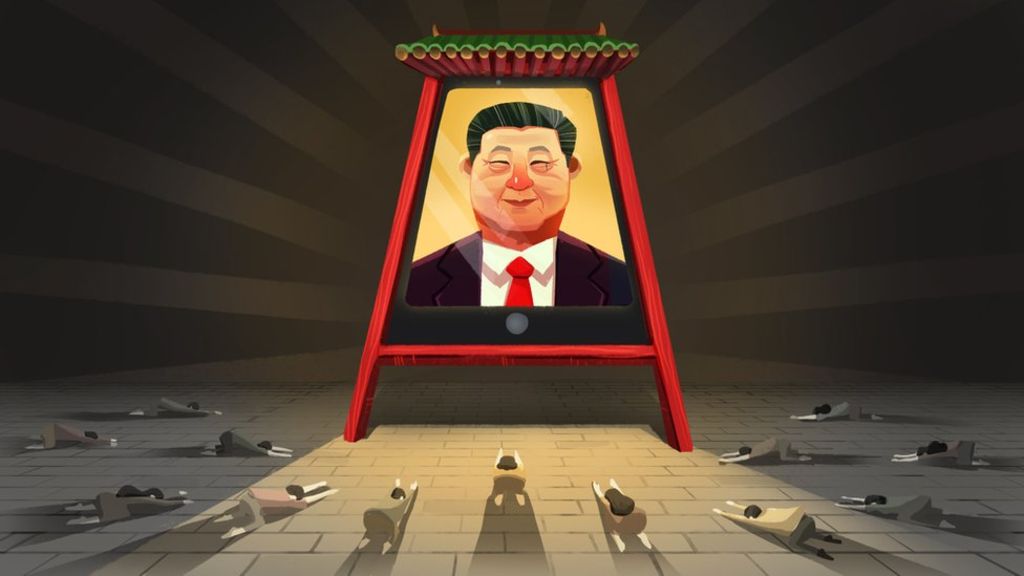(TibetanReview.net, Jun12’21) – As China broadened its political education campaign ahead of celebrations marking the 70th anniversary of its annexation of Tibet on May 23 and the 100th anniversary of the founding of the People’s Republic of China on Jul 1, its top leaders, especially Party General Secretary Xi Jinping, are apparently being elevated to the status of spiritual icons.
Chinese officials say the campaign is key to the future of Tibet and civilians and religious figures who the government arranged to be interviewed by a group of more than a dozen reporters on a five-day trip pledged loyalty to the Communist Party and Xi, reported Reuters Jun 12.
Visits to Tibet by non-official Chinese media reporters is rare and possible only in tightly chaperoned government tours and the Chinese government has conducted one last week.
There are now probably more portraits of Chinese leaders, especially that of Xi Jinping, than those of religious deities in Tibet today. Reuters said its journalist saw the portraits in classrooms, streets, religious institutions, houses, and the bedroom of a Buddhist monk the group was chaperoned to visit.
Asked who his spiritual leader was, a monk at Lhasa’s historic Jokhang temple named “Xi” (Jinping), the report said.
Not sure that he had heard it right, the reporter repeated his question.
“I’m not drunk … I speak freely to you,” the report quoted the monk – named as Lhakpa – as making it clear, speaking from a courtyard overlooked by security cameras and government observers.
The ubiquitous presence of the posters of Chinese leaders “coincide with a massive political education programme which is called ‘feeling gratitude to the party’ education,” Robert Barnett, a Tibetan studies veteran scholar at the University of London’s School of Oriental and African Studies, has said.
The report cited government officials as saying such images, along with small Chinese flags that lined many city streets, were a sign of the “patriotic feeling” in Tibet.
There have been previous reports saying Tibetans receiving government welfare and subsidies in various Tibetan regions had been required to replace the images of deities on their religious altars with those of top Chinese leaders. Many had refused, putting in doubt China’s claim to have eliminated poverty in Tibet.
And what of Tibet’s real spiritual leader, the Dalai Lama?
Well, according to Fan Chunwen, the secretary for Tibet’s Department of Education, “Since Dalai defected, he has not done anything good for the Tibetan people,” echoing similar remarks made by other Chinese leaders in the past.



